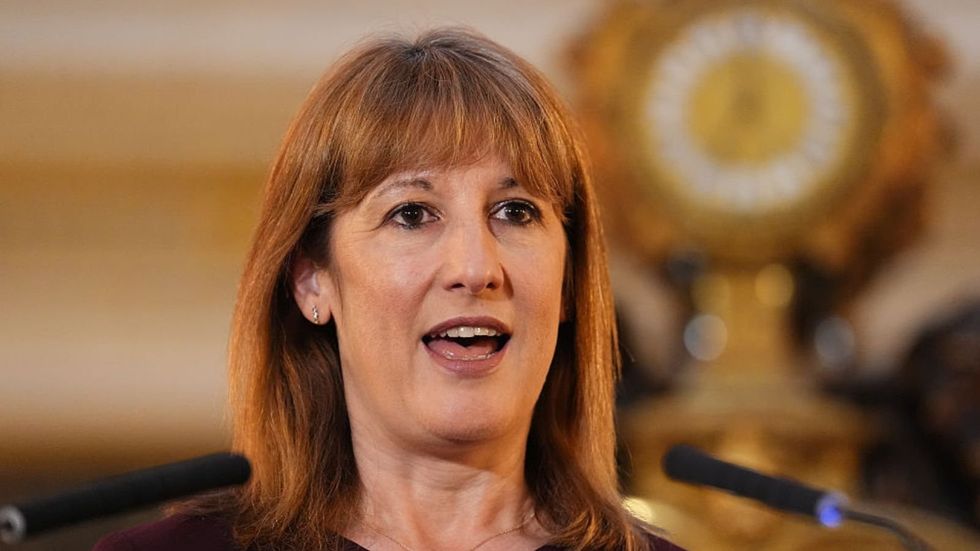Pressure is mounting on Chancellor Rachel Reeves to slash the maximum tax-free pension withdrawal from £268,275 to £100,000, with leading think tanks claiming the current system is too generous.
Experts have said that pension savings enjoy multiple tax advantages that go far beyond what most workers receive.
These include the right to take 25 per cent of your pension tax-free, exemption from National Insurance contributions, and larger tax reliefs for higher earners.
Writing for the Fabian Society, Andrew Harrop, public policy expert said that “pension tax rules are too generous and clearly unfair,” pointing out that “53 per cent of all pension tax relief went to the fifth of employees on higher tax bands.”
He explained that there are two reforms to address the systematic under-taxing of pensions. The first is to reduce the amount of tax-free cash that can be taken at retirement from £268,000 to £100,000.
The second is to levy an equivalent to national insurance on large private pensions, to make up for NICs having not being levied in the past on employer pension contributions.
If adopted, the proposal would mean future retirees could take a much smaller lump sum from their pension tax-free, a change that could impact millions of workers planning for retirement.
Mr Harrop acknowledged the political difficulty the Chancellor would face, saying: “These are progressive policies that would raise revenue from wealthy older people who have pensions that were historically under-taxed.
“But the chancellor knows the media backlash she could expect. Rich savers nearing retirement would argue that their big untaxed lump sum was part of the pension ‘deal’ on which they had based their plans. Transitional protections would probably be needed for people near their pension age
In the Fabian Society ‘Taxing Questions’ report, Mr Harroop explained the system should be rebalanced to make it fairer, suggesting a gradual reduction of the tax-free withdrawal limit, by around £20,000 to £30,000 at a time, to avoid sudden shocks for savers.

So far, the government has declined to confirm whether it will maintain current pension tax arrangements, despite calls from the financial services sector for reassurance that existing incentives will remain in place for the rest of this parliamentary term.
At the same time, Ms Reeves faces mounting fiscal pressure ahead of November’s Budget. The Office for Budget Responsibility (OBR) has downgraded its productivity forecast, a move that leaves the Chancellor with an additional £20billion gap in the public finances to fill.
The downgrade, adds to an existing shortfall of £30-40billion and further limits her options to balance the books. Many economists warn that tax rises are inevitable.
Analysis from the Institute for Fiscal Studies (IFS) suggests the Chancellor could raise tens of billions in extra revenue without increasing the main taxes, but warned that such measures would be difficult to implement and risk causing economic harm if driven by political considerations.

They proposed several other revenue-generating measures, including restructuring the tax-free withdrawal system.
Thr IFS’ report suggested that “one attractive option for reform would be to replace the tax-free 25 per cent with a (taxable) cash top-up on pension withdrawals,” which could “provide more even benefits” and raise meaningful amounts of revenue.
Alternatively, it suggested that the cap of £268,275, introduced by former Chancellor Jeremy Hunt in March 2023 alongside the abolition of the lifetime allowance, could be reduced, with an earlier IFS report highlighting a cap of £100,000 as an illustrative option.
However, this backing for changes to the lump sum is far from universal, as industry experts have previously raised concerns over the potential for change in this area, with particular worries raised around the potential impact that rumours of a potential change could have on savers’ behaviour.

Isaac Delestre from the IFS warned against “directionless tinkering and half-baked fixes,” emphasising that any reforms should form part of a comprehensive strategy rather than short-term revenue measures.
Last year’s Budget speculation drove numerous individuals to withdraw their tax-free allowances prematurely, decisions many subsequently came to rue as they faced reduced retirement income.
Current uncertainty appears to be creating similar conditions, with industry professionals warning that the government’s reluctance to provide clarity could prompt another wave of hasty withdrawals.
Tom Selby, expert at AJ Bells suggested that the Chancellor should “pledge not to make any changes to the pension tax system at least until the commission reports,” which would eliminate immediate concerns and allow comprehensive consideration of the implications.
Without such assurances, retirement planners face another anxious wait until the Budget announcement.
Our Standards: The GB News Editorial Charter







Follow